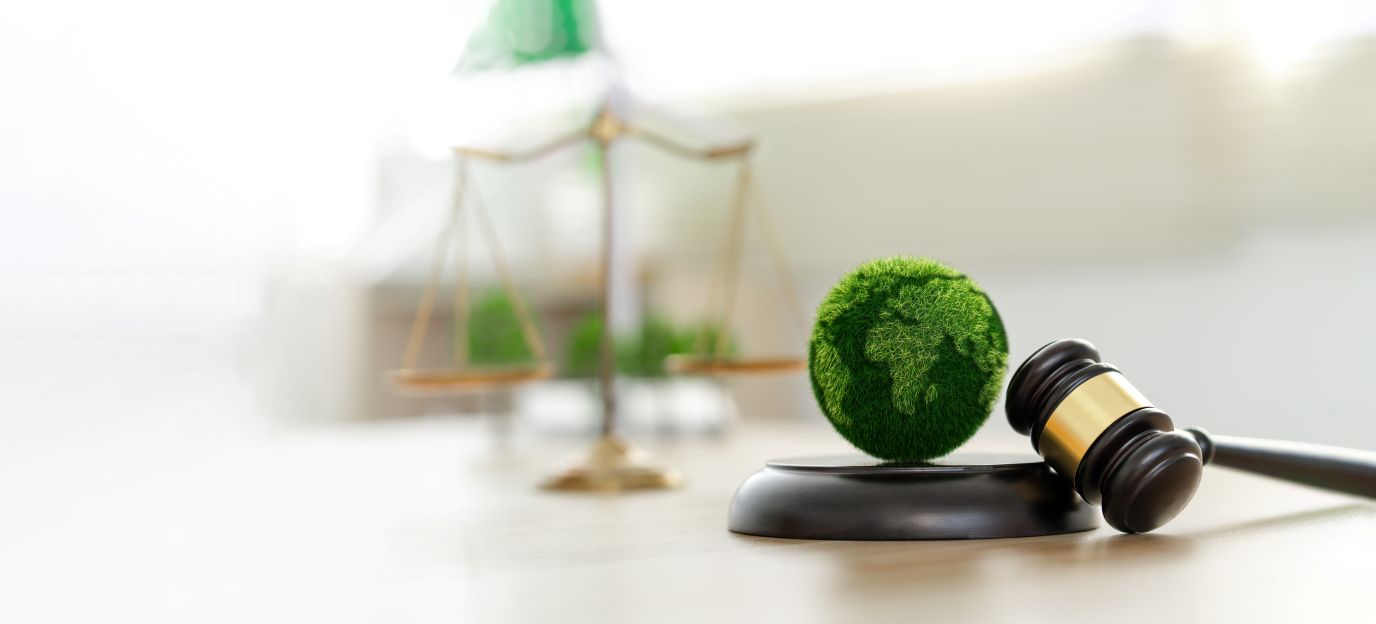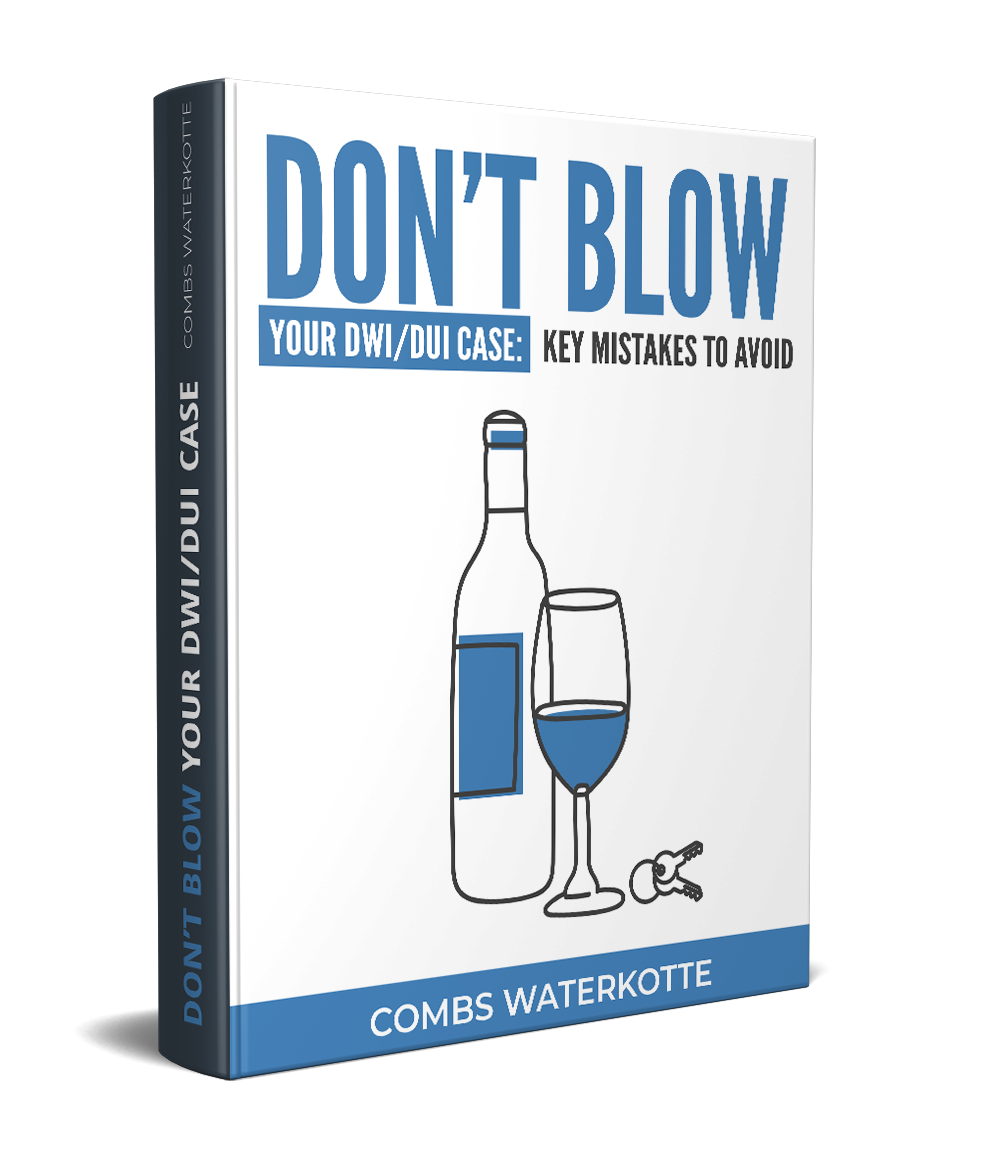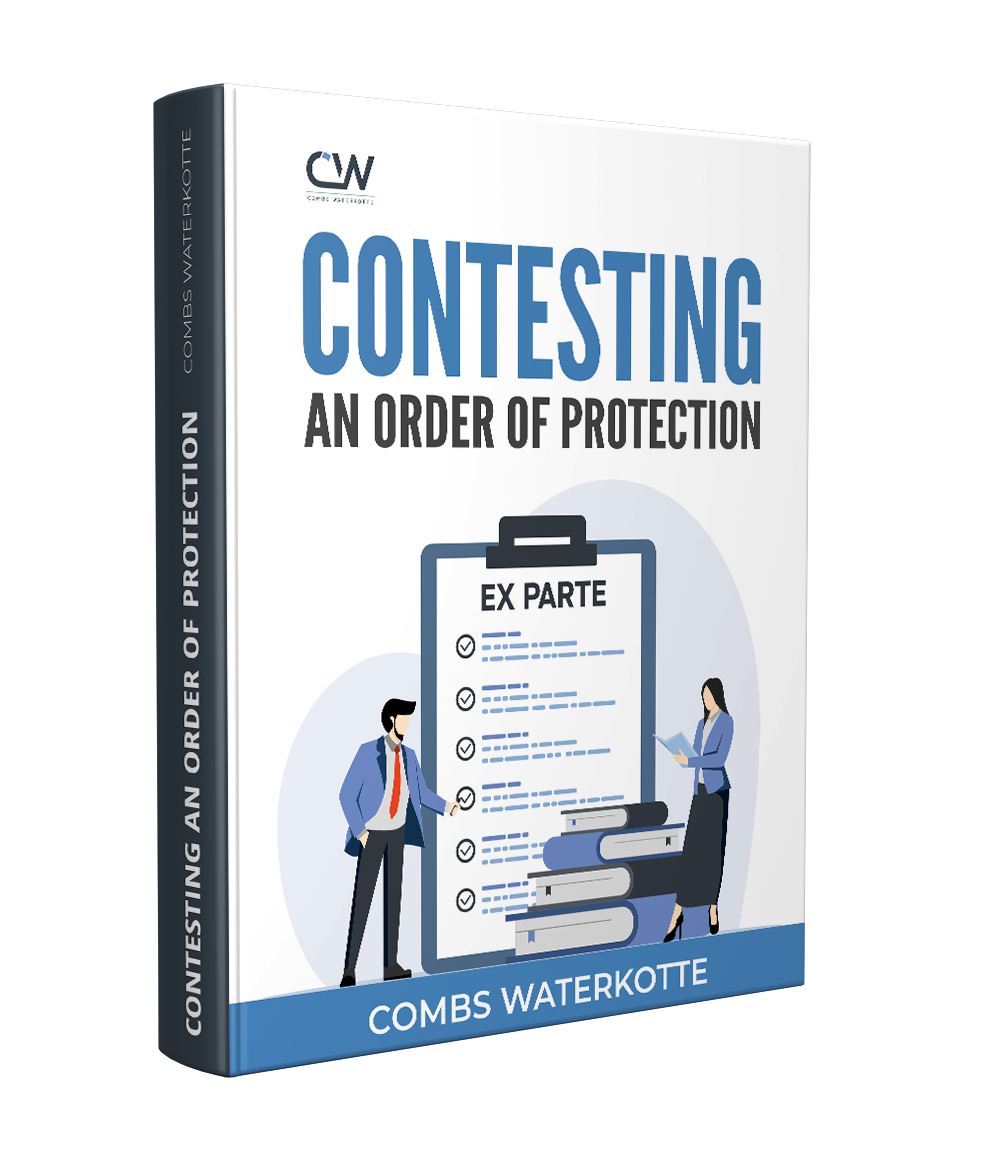
Environmental Crimes Lawyer in Missouri
Environmental law violations are aggressively prosecuted at the federal level, and the penalties can be severe. If you or your business is under investigation for environmental violations, you need an experienced federal environmental crimes lawyer in Missouri who understands the complexity of federal regulations, compliance obligations, and courtroom strategy.
At Combs Waterkotte, we provide strategic, results-driven defense for clients charged with offenses such as illegal waste disposal, Clean Water Act violations, or unlawful emissions. Whether you're facing administrative sanctions or a full-blown federal indictment in the U.S. District Court for the Eastern District of Missouri in St. Louis or the Western District in Kansas City, our team of environmental crimes lawyers has the knowledge and tenacity to protect your rights.
Charges for federal environmental crimes are nothing to balk at. Contact Combs Waterkotte or call (314) 900-HELP right now for a free, confidential consultation.

What Constitutes an Environmental Crime in Missouri?
Environmental crimes are violations of laws designed to protect human health and the environment. These can range from improper handling of hazardous materials to illegal dumping or emissions beyond permitted levels.
Common federal environmental crimes that our skilled legal team has decades of experience in include:
- Violations of the Clean Water Act (CWA). These could include:
- Discharging chemical, medical, or radioactive waste into water sources in the U.S. without a permit or in violation of a permit
- Discharging sewage sludge into water
- Discharging oil into water or off the shores of the U.S.
- Introducing or discharging pollutants or hazardous substances into a sewer system or water treatment facility
- Tampering with monitoring equipment or other devices that regulate or measure environmental impact
- Intentional failures to maintain records, report spills, or other accidents that impact the environment
- Making false statements to the EPA relating to an individual or company’s compliance with the CWA
- Violations of the Clean Air Act (CAA), including:
- Knowingly constructing or modifying a building that emits hazardous air pollutants or otherwise failing to comply with the National Emission Standards for Hazardous Air Pollutants (NESHAP)
- Failing to comply with federal regulations governing the proper disposal of asbestos materials
- Building or importing a vehicle that fails to meet CAA emissions standards, as well as tampering with emission control devices in a motor vehicle
- Operating a building or vehicle that emits hazardous air pollutants without a permit
- Negligently emitting hazardous air pollutants that put others in danger
- Violating an emergency order issued by the EPA
- Knowingly failing to comply with the CAA’s certification and reporting requirements and tampering with monitoring devices
- Illegal disposal of hazardous waste under the Resource Conservation and Recovery Act (RCRA), including:
- Storing, treating, transporting, or disposing of used oil not identified or listed as a hazardous waste in the RCRA
- Transporting unidentified hazardous waste or used oil without a manifest
- Exporting a hazardous waste identified under the RCRA without the consent of the receiving country
- Generating, storing, transporting, or disposing of unidentified hazardous waste while destroying or altering documents filed with the government
- Making false statements in an application, label, report, or other document filed with the government
- Toxic Substances Control Act (TSCA) violations like:
- Failing to meet federal standards for disposing of regulated chemicals
- Unlawfully producing, using, or distributing regulated chemicals for commercial purposes
- Failing to maintain records or submit reports to the EPA as required
- Failing to permit an inspection by the EPA or any other government regulatory agency
- Transportation of hazardous substances without proper documentation
- Unlawful emissions or effluent discharges
- Illegal wildlife trading—including ivory, pangolins, and other wildlife
- Illegal logging
- Criminal negligence resulting in environmental contamination
These cases are often investigated by agencies such as the EPA’s Criminal Investigation Division and the Department of Justice (DOJ). You need an environmental crimes legal team familiar with federal criminal procedures, discovery rules, and sentencing guidelines that apply in federal courts.

What’s the Difference Between Federal & State Environmental Crimes?
Federal environmental crimes are typically violations of major U.S. environmental statutes, like the ones listed above, and involve interstate pollution, hazardous waste transportation, or federal facilities. These are investigated and prosecuted by federal agencies and attorneys. At Combs Waterkotte, we are well-versed in federal criminal procedures, discovery rules, and sentencing guidelines that apply in these courts.
State-level violations are enforced by the Missouri Department of Natural Resources (DNR) and prosecuted under Missouri criminal statutes. The penalties are far less severe.
What Are the Penalties for Environmental Law Violations in Missouri?
Federal environmental crimes are not treated as minor offenses. Charges filed in the Eastern or Western Districts of Missouri can lead to prosecution in St. Louis or Kansas City, respectively—venues known for their rigorous enforcement of environmental laws. Depending on the alleged violation, consequences may include:
- Fines exceeding $50,000 per day of violation
- Restitution to harmed individuals or communities
- Federal prison time for corporate executives or business owners
- Loss of business licenses or permits
- Mandatory environmental cleanup under EPA oversight
- Corporate probation or debarment from federal contracts

What You Should Do If Charged With Environment Crimes in Missouri
If you are facing a federal environmental violation in Missouri, the next steps are critical. A conviction can bring steep fines, federal prison time, and long-term consequences for your reputation and business. Here’s what you should do immediately:
- Contact an Experienced Environment Crimes Lawyer Immediately
Do not wait. You need an experienced lawyer who can help review any violation documentation and begin building a defense strategy, as well as possibly intervening before formal charges escalate or an indictment is issued. - Exercise Your Right to Remain Silent
Do not speak with any investigator or law enforcement officer, no matter what badge they show or what acronymed agency they work for. Statements made early can, and will, be used to build a case against you. - Preserve All Relevant Records and Documents
Immediately secure any internal communications or safety documentation, contracts or third-party records related to waste, emissions, or environmental handling, as well as any permits, compliance reports, and inspection reports. These materials can help build a strong defense or demonstrate a lack of intent. - Do Not Alter or Destroy Any Evidence
Even if you suspect wrongdoing occurred, do not delete files, destroy documents, or try to fix violations retroactively. Doing so could lead to obstruction of justice or other additional charges. - Begin Building a Compliance Narrative
If you’ve made proactive efforts to stay in compliance, such as employee training, third-party audits, or self-reporting, this can help in negotiations with regulators or in court. If not, your Combs Waterkotte environmental crimes attorney can help initiate a corrective action plan to show good faith. - Stay Ahead of the Story
If you’re a business owner, employee, or executive, reputation matters. We help clients manage sensitive communications with regulators, investors, partners, and the public to reduce the damage of publicity and preserve operational continuity.
How We Defend Against Federal Environmental Crime Charges in Missouri
No two environmental cases are alike. One distinguishable feature of federal environmental crimes is that they don’t require an intent to endanger others in order to be prosecuted. We tailor each defense based on the facts, the regulatory framework, and your goals.
Our defense strategies may include:
- Challenging the scientific evidence or testing procedures
- Proving compliance or reliance on inaccurate agency guidance
- Contesting the chain of custody for samples
- Negotiating with regulators for reduced penalties or civil resolution
- Fighting for dismissal based on due process violations
In many cases, we can resolve allegations before charges are filed—saving your reputation, resources, and future. If you’re facing charges in Missouri, call a Combs Waterkotte environmental crimes lawyer right away at (314) 900-HELP or reach out online.
































